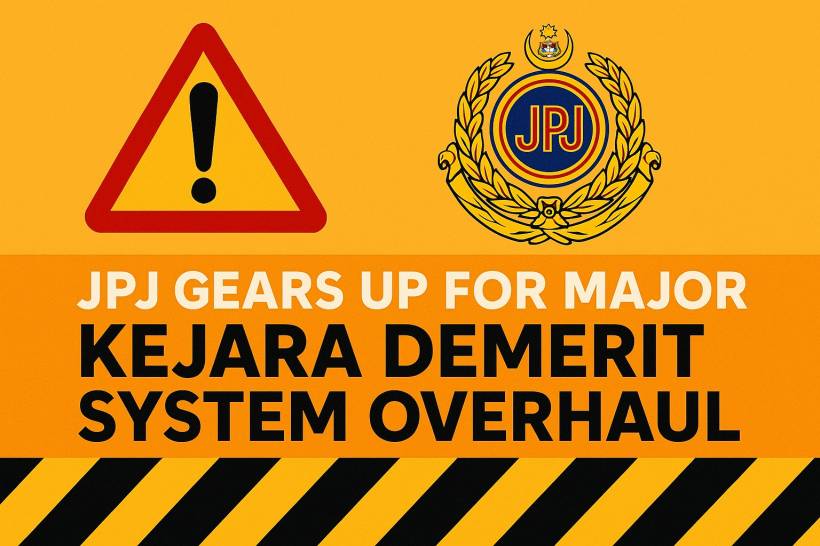The Road Transport Department (JPJ) is in the final stretch of revamping the Kejara demerit points system, a long-standing mechanism aimed at curbing reckless driving and repeat traffic offenses. This upgrade is part of a broader reform initiative led by Transport Minister Anthony Loke, who has been vocal about the need to make Kejara more effective.
What's Changing and Why It Matters
At its core, the Kejara system is supposed to act as a deterrent—penalizing drivers who commit traffic violations with demerit points that could eventually lead to the suspension or revocation of their driving license. But the current system has serious flaws. For one, demerit points are only applied when offenders pay their summonses or are charged in court, meaning drivers can sidestep penalties just by ignoring their fines.
This loophole has long undermined Kejara's purpose, and it's something the Transport Ministry is determined to fix.
Final Touches Before Implementation
JPJ's director-general, Datuk Aedy Fadly Ramli, recently shared that the department is putting the final touches on the proposed updates. Once the internal review is complete, the draft will be sent to the Transport Ministry, followed by legal reviews by the Attorney General's Chambers.
He emphasized that the improvements will take time due to the need for legislative amendments and higher-level approvals. But the end goal is clear: to make Kejara a truly effective road safety tool.
A Brief Look Back: Kejara's Journey
The Kejara system has been around since 1984, introduced under the Road Transport Act 1987. It was designed to assign points for specific traffic offences, progressively punishing repeat offenders. However, due to challenges in enforcement, the system was suspended in 2011.
It made a comeback in 2017, paired with the Automated Enforcement System (AES) under the Automated Awareness Safety System (AWAS) umbrella. Despite this relaunch, issues with effectiveness persisted.
What's Next?
The proposed overhaul aims to close existing gaps by introducing prompt and consistent enforcement. This means traffic offenders could soon face consequences automatically and immediately, regardless of whether they settle their summonses.
For everyday road users, especially repeat offenders, this could be a wake-up call. For the rest of us, it's a long overdue improvement to ensure that our roads are safer and that accountability doesn't get lost in red tape.





Comments